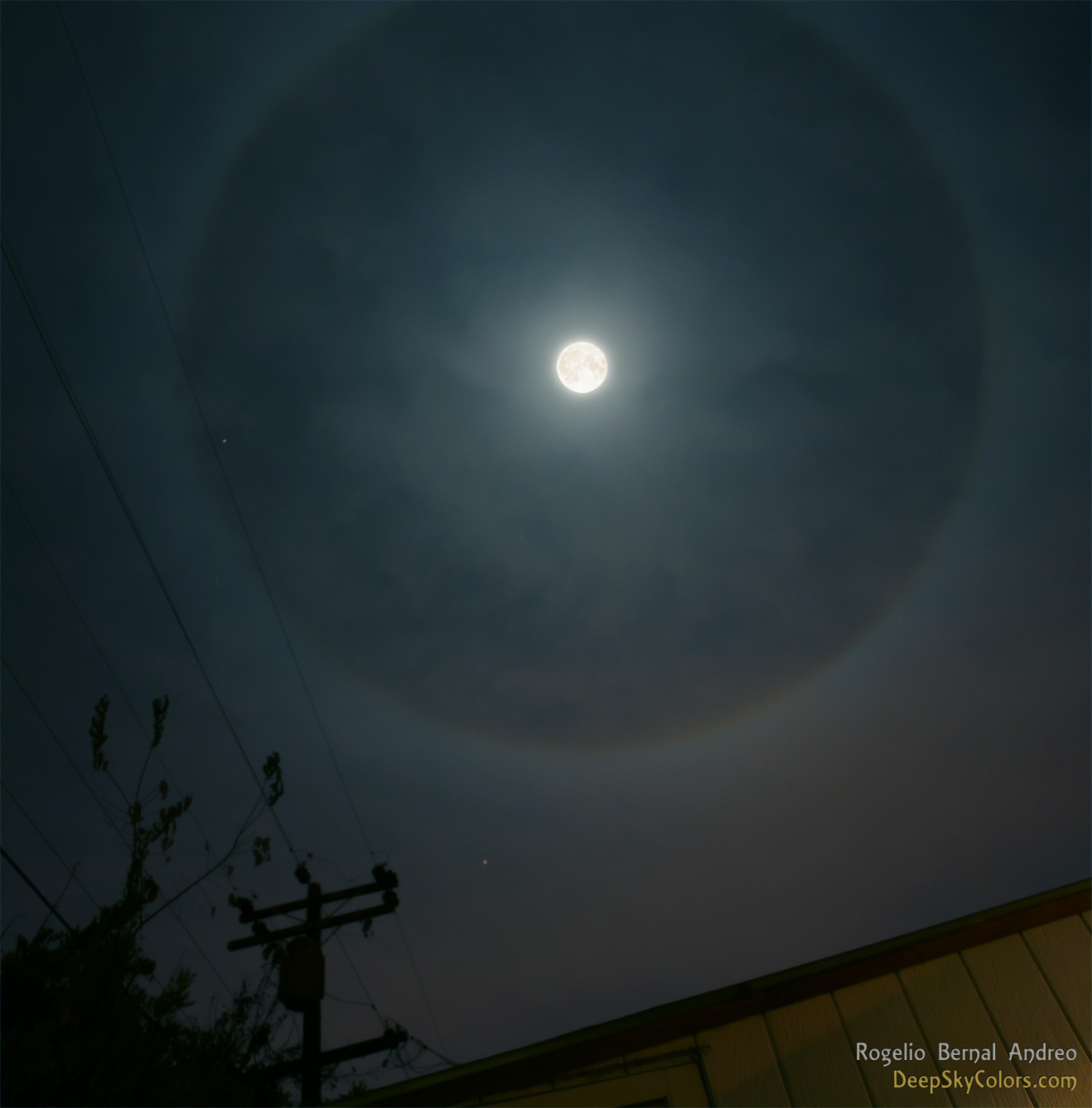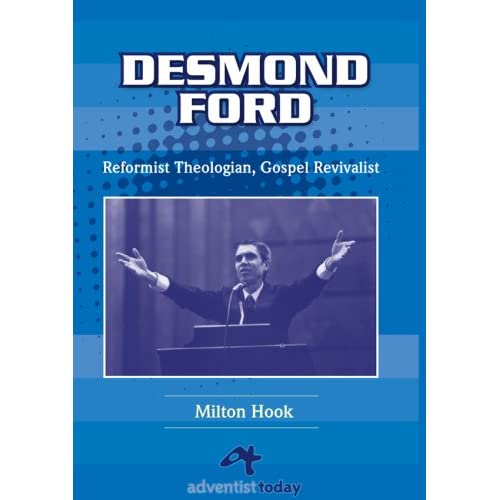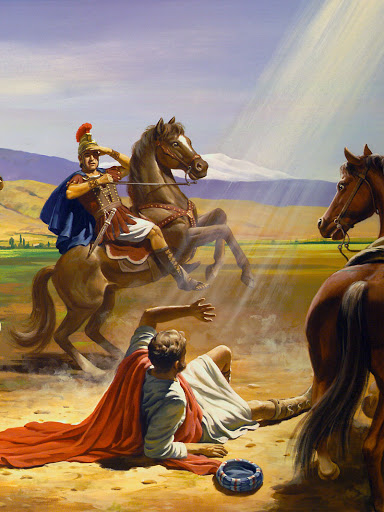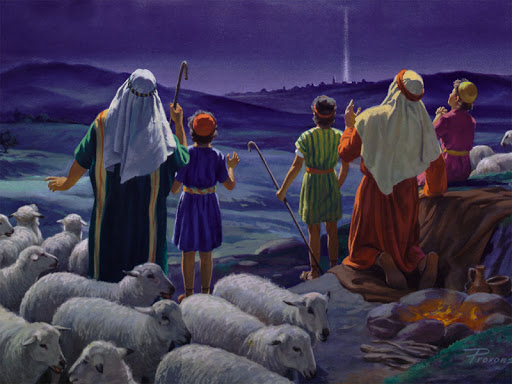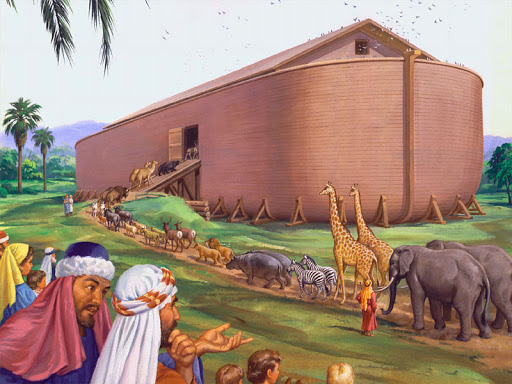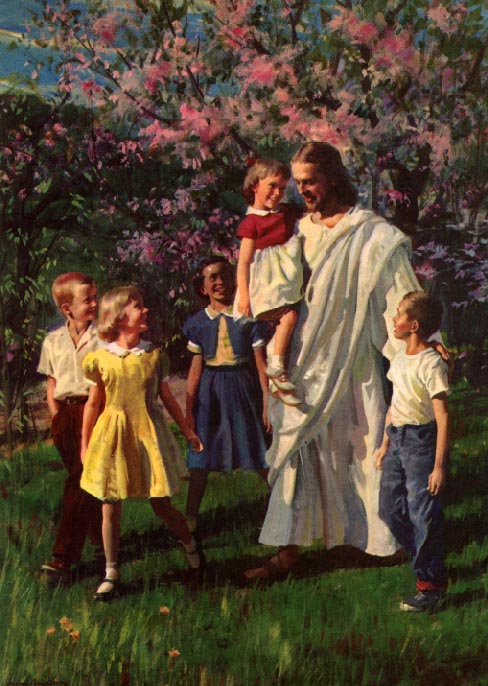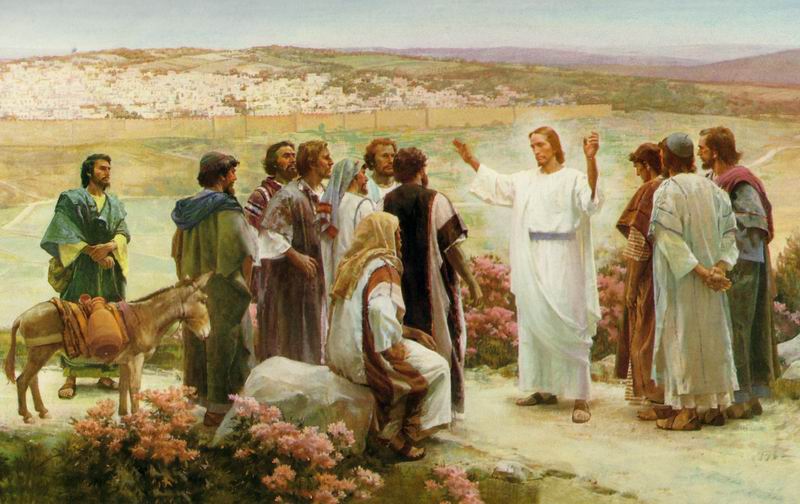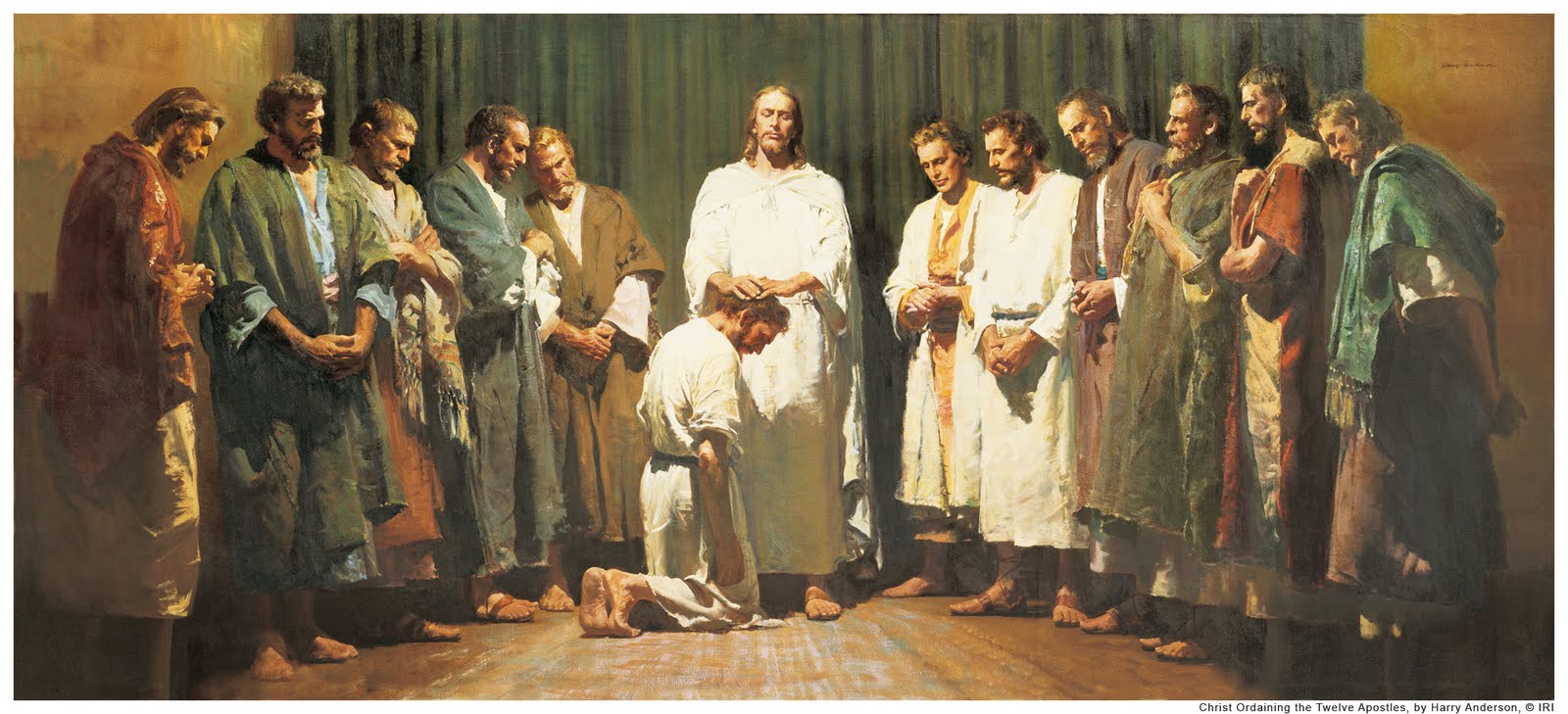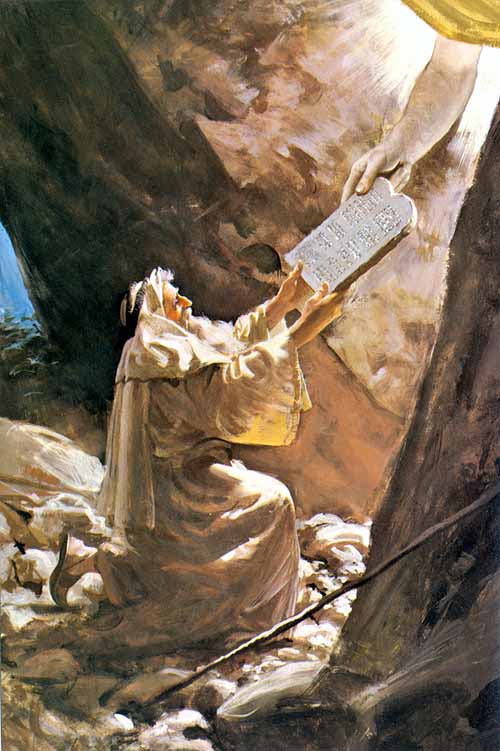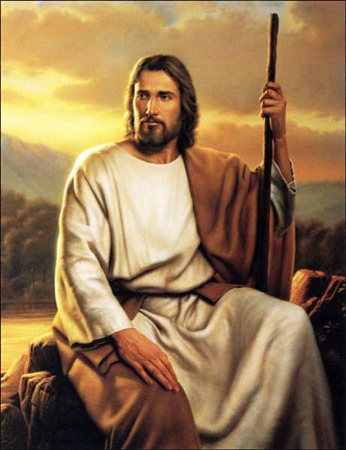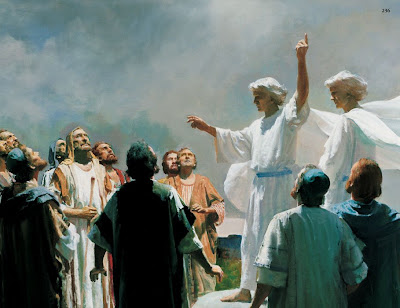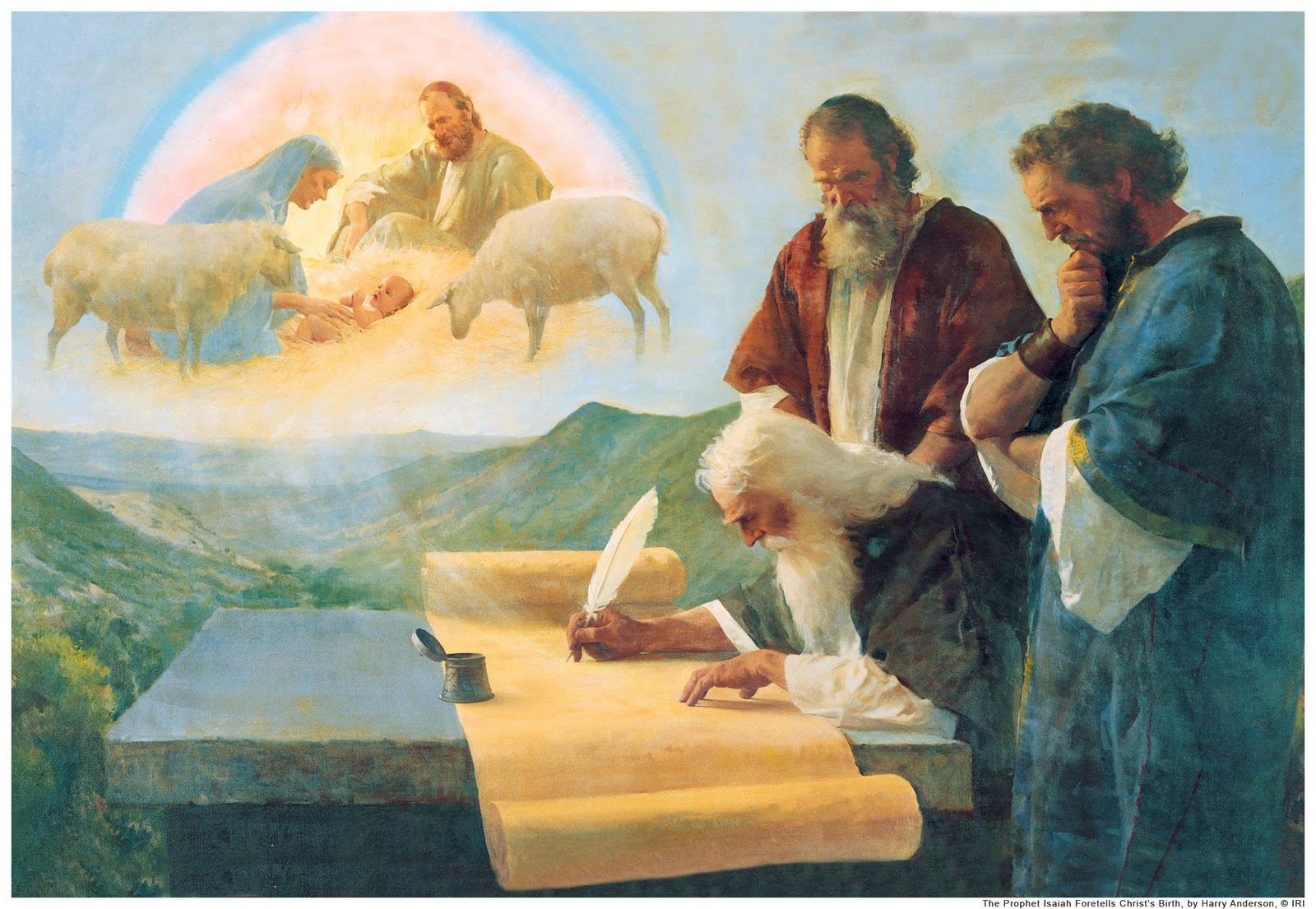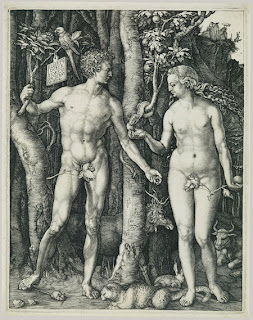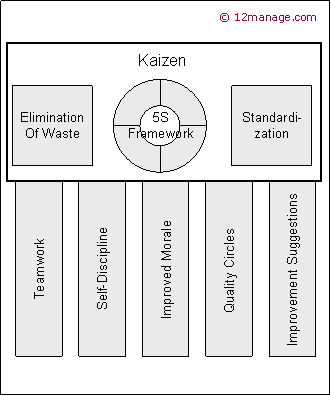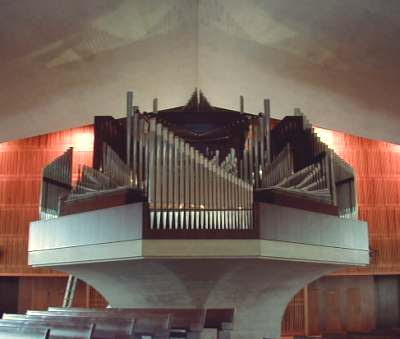Consider:
1. The Knights Templar and Teutonic Knights (historically, and any modern forms).
2. The Masons Throughout the Solar System.
3. The Nazis Throughout the Solar System.
4. The Jesuits Throughout the Solar System.
5. The Alphabet Agencies Throughout the Solar System.
6. The Underground Bases Throughout the Solar System.
7. The Secret Space Program Throughout the Solar System.
8. The Secret Government Throughout the Solar System.
9. The Nuclear and WMD Programs Throughout the Solar System.
10. Secret Laboratories of All Kinds, Throughout the Solar System.
11. The Old World Order Throughout the Solar System.
12. The New World Order Throughout the Solar System.
13. The Illuminati Throughout the Solar System.
14. The Elites Throughout the Solar System.
15. Megalomaniacs Anonymous Throughout the Solar System.
16. The Orion-Sirius-Egyptian-Roman Empire.
17. The Osiris-Isis-Horus-Set Royal Family.
Why does all of the above have to be dark, creepy, corrupt, and violent? I tend to think that all of the above are really various aspects of the same phenomenon, with the same ultimate leader(s). I actually think that a lot of this phenomenon is pretty cool (from the little bits and pieces I have learned about), but that a lot of it is rogue and nasty, going back hundreds, or even thousands, of years (right back into Ancient Egypt, Sirius, and Orion?). I can understand a certain amount of secrecy, and a certain amount of scripting and orchestrating of public activities and events (including the mass media in all of it's forms), but again, the rogue and nasty aspects of all of this seem to have been, and are, at unacceptably high levels. How do we properly supervise all of the above, so that reasonable autonomy and freedom combined with reasonable privacy and secrecy, might be maintained, while completely avoiding false-flag terrorism, orchestrated and contrived wars, planned financial collapses, creepy and bloody rituals, cooperation with demonic-forces, demoralizing and destroying society, etc, etc, etc??????? Would a Responsibility-Based United States of the Solar System, with 10,000 Representatives (With PhD's in Solar System Studies and Governance) be a proper modality for mananging the insanity? Is the number of Representatives too high or too low? Should there be Grey and Drac Representatives? Are Greys and Dracs Really Demonic in Nature? How in the hell am I supposed to know? I truly do not wish to create chaos and social unrest. I highly value organization, law, and order. I simply wish to help turn this solar system into some sort of a paradise. I would love to experience a Second Coming of Christ Scenario, but I'm really not into Genocidal Armageddon Scenarios, complete with the Destruction of the Wicked and Eternally Lost Souls. However, I do believe in justice (Divine or Otherwise), and incarceration and education might have to be applied liberally, but without cruel and unusual punishment of any kind.
I see myself continuing to do what I'm doing right now, but in a much more sophisticated manner. I've joked about working on the Moon, or under the City of London, but in this computer-age, it really doesn't matter, does it? However, I still like the idea of having my very own Sport-Model Bad@$$teroid with a Cray Supercomputer, Fast InterPlaNet, a Fisk Pipe-Organ, and a crew of half a dozen very-beautiful and very-eager women!!! I might even attempt reentry!!! Let's see, if I get married and divorced half a dozen times a week, I'll never have to commit adultery!! Then we'll all rest on the Sabbath -- and sing the choral-works of Bach and Handel!! In fact, I think I might specialize in asteroids, including asteroid-spacecraft (military and civilian). Who, in this solar system, knows the most about asteroids? Actually, I think I might know who that is, and I might've talked with them, and possibly while they were aboard an asteroid. I think I might've even heard an alien talking in the background. I said to say 'hello' to them. Gotta go. The nice men in the white-coats have arrived in their black-helicopter to take me to see the sexy lady with the chipped-badge and the big-boobs -- in the big building surrounded by an electrified barbed-wire fence. She always makes me feel soooooooo much better. Don't take me too seriously! Once again, I wouldn't be able to have a good-time, even if my eternal-life depended on it, and I wish I were kidding. But I have been seriously thinking about the Personal-Asteroid idea. I know it's insanely impractical, but wouldn't that be WAY COOL???!!! I've joked about having a 600 square-foot office-apartment. Well, what if said asteroid had a 15ft wide, 40ft long, and 40ft high office-apartment with a 2 manual, 12 rank Fisk pipe-organ at one end?
https://www.youtube.com/watch?v=fPNvReAGS_A Then, what if the walls were covered with huge flat-screen monitors linked to cameras on the outside of the asteroid? I REALLY am crazy, aren't I? The asteroid would only have to be capable of traveling at 1% the speed of light, and it would probably only need to be 1 mile in diameter. I'm easy!! Do unconventional asteroids actually land on asteroids, moons, and planets? If not, I'd probably have to buy TR3B tickets online (with Astra Airlines) to be able to commute between Home Sweet Asteroid, the City of London, Vatican City, and Washington D.C. Damn! I just ran out of ludes! Seriously, we might really be on the brink of extinction, yet I will continue to think in idealistic and utopian terms, and I will continue to conceptualize an idealized form of the current state of the solar system. I'll keep listening to Alex Jones, Sherry Shriner, Eric Jon Phelps, et al, but I will just keep this thread going in a somewhat humorous yet serious manner, without becoming filled with fear, anger, and hatred. I care very deeply, but this is my strange way of dealing with all of the bullshit. This is a VERY strange space to be in, but then I'm a VERY strange space-case. Far Out Man! Pedro just brought me some more ludes dude!!!! He even let me put them on my tab!!!! I used to eschew obfuscation, but since I started posting on the internet, I have tended to keep people guessing. If you can't convince 'em -- confuse 'em!! I'm easily confused!! What the hell am I talking about??? I don't know what I'm talking about!!! Must be the ludes! Pedro gave me bad ludes!!











 THE VAST ORTHODOXYMORON EMPIRE STRIKES BACK, WHILE ORTHODOXYMORON STRIKES BACH!! https://www.youtube.com/watch?v=fPNvReAGS_A
THE VAST ORTHODOXYMORON EMPIRE STRIKES BACK, WHILE ORTHODOXYMORON STRIKES BACH!! https://www.youtube.com/watch?v=fPNvReAGS_AAsteroids
http://en.wikipedia.org/wiki/Asteroid (from Greek ἀστήρ 'star' and εἶδος 'like, in form') are a class of small Solar System bodies in orbit around the Sun. They have also been called planetoids, especially the larger ones. These terms have historically been applied to any astronomical object orbiting the Sun that did not show the disk of a planet and was not observed to have the characteristics of an active comet, but as small objects in the outer Solar System were discovered, their volatile-based surfaces were found to more closely resemble comets, and so were often distinguished from traditional asteroids.[1] Thus the term asteroid has come increasingly to refer specifically to the small rocky and metallic bodies of the inner Solar System out to the orbit of Jupiter. They are grouped with the outer bodies—centaurs, Neptune trojans, and trans-Neptunian objects—as minor planets, which is the term preferred in astronomical circles.[2] This article will restrict the use of the term 'asteroid' to the minor planets of the inner Solar System.
There are millions of asteroids, many thought to be the shattered remnants of planetesimals, bodies within the young Sun’s solar nebula that never grew large enough to become planets.[3] A large majority of known asteroids orbit in the asteroid belt between the orbits of Mars and Jupiter or co-orbital with Jupiter (the Jupiter Trojans). However, other orbital families exist with significant populations, including the near-Earth asteroids. Individual asteroids are classified by their characteristic spectra, with the majority falling into three main groups: C-type, S-type, and M-type. These were named after and are generally identified with carbon-rich, stony, and metallic compositions, respectively.
A newly discovered asteroid is given a provisional designation (such as 2002 AT4) consisting of the year of discovery and an alphanumeric code indicating the half-month of discovery and the sequence within that half-month. Once an asteroid's orbit has been confirmed, it is given a number, and later may also be given a name (e.g. 433 Eros). The formal naming convention uses parentheses around the number (e.g. (433) Eros), but dropping the parentheses is quite common. Informally, it is common to drop the number altogether, or to drop it after the first mention when a name is repeated in running text.
The first asteroids to be discovered were assigned iconic symbols like the ones traditionally used to designate the planets. By 1855 there were two dozen asteroid symbols, which often occurred in several variants.[4]
Asteroid Symbol
1 Ceres ⚳ Ceres' scythe, reversed to double as the letter C
2 Pallas ⚴ Athena's (Pallas') spear
3 Juno ⚵ A star mounted on a scepter, for Juno, the Queen of Heaven
4 Vesta ⚶ The altar and sacred fire of Vesta
5 Astraea A scale, or an inverted anchor, symbols of justice
6 Hebe Hebe's cup
7 Iris A rainbow (iris) and a star
8 Flora A flower (flora) (spec. the Rose of England)
9 Metis The eye of wisdom and a star
10 Hygiea Hygiea's serpent and a star, or the Rod of Asclepius
11 Parthenope A harp, or a fish and a star; symbols of the sirens
12 Victoria The laurels of victory and a star
13 Egeria A shield, symbol of Egeria's protection, and a star
14 Irene A dove carrying an olive-branch (symbol of irene 'peace') with a star on its head,[5] or an olive branch, a flag of truce, and a star
15 Eunomia A heart, symbol of good order (eunomia), and a star
16 Psyche A butterfly's wing, symbol of the soul (psyche), and a star
17 Thetis A dolphin, symbol of Thetis, and a star
18 Melpomene The dagger of Melpomene, and a star
19 Fortuna The wheel of fortune and a star
26 Proserpina Proserpina's pomegranate
28 Bellona Bellona's whip and lance[6]
29 Amphitrite The shell of Amphitrite and a star
35 Leukothea A lighthouse beacon, symbol of Leucothea[7]
37 Fides The cross of faith (fides)[8]
In 1851,[9] Johann Franz Encke made a major change in the upcoming 1854 edition of the Berliner Astronomisches Jahrbuch (BAJ, Berlin Astronomical Yearbook). He introduced a disk (circle), a traditional symbol for a star, as the generic symbol for an asteroid. The circle was then numbered in order of discovery to indicate a specific asteroid, though he assigned ① to the fifth, Astraea, the first four continuing with their existing symbols. The numbered-circle convention was quickly adopted by the astronomical community, and no iconic symbols were created after 1855.[10] That year Astraea's number was bumped up to ⑤, but Ceres through Vesta would not be listed by their numbers until the 1867 edition. The circle would become a pair of parentheses, and the parentheses sometimes omitted altogether over the next few decades, leading to the modern convention.[5]
243 Ida and its moon Dactyl. Dactyl is the first satellite of an asteroid to be discovered.The first asteroid to be discovered, Ceres, was found in 1801 by Giuseppe Piazzi, and was originally considered to be a new planet.[note 1] This was followed by the discovery of other similar bodies, which with the equipment of the time appeared to be points of light, like stars, showing little or no planetary disc, though readily distinguishable from stars due to their apparent motions. This prompted the astronomer Sir William Herschel to propose the term "asteroid", from Greek αστεροειδής, asteroeidēs 'star-like, star-shaped', from ancient Greek αστήρ, astēr 'star, planet'. In the early second half of the nineteenth century, the terms "asteroid" and "planet" (not always qualified as "minor") were still used interchangeably; for example, the Annual of Scientific Discovery for 1871, page 316, reads "Professor J. Watson has been awarded by the Paris Academy of Sciences, the astronomical prize, Lalande foundation, for the discovery of eight new asteroids in one year. The planet Lydia (No. 110), discovered by M. Borelly at the Marseilles Observatory [...] M. Borelly had previously discovered two planets bearing the numbers 91 and 99 in the system of asteroids revolving between Mars and Jupiter".
In the last years of the 18th century, Baron Franz Xaver von Zach organized a group of 24 astronomers to search the sky for the missing planet predicted at about 2.8 AU from the Sun by the Titius-Bode law, partly because of the discovery, by Sir William Herschel in 1781, of the planet Uranus at the distance predicted by the law. This task required that hand-drawn sky charts be prepared for all stars in the zodiacal band down to an agreed-upon limit of faintness. On subsequent nights, the sky would be charted again and any moving object would, hopefully, be spotted. The expected motion of the missing planet was about 30 seconds of arc per hour, readily discernible by observers.
The first object, Ceres, was not discovered by a member of the group, but rather by accident in 1801 by Giuseppe Piazzi, director of the observatory of Palermo in Sicily. He discovered a new star-like object in Taurus and followed the displacement of this object during several nights. His colleague, Carl Friedrich Gauss, used these observations to find the exact distance from this unknown object to the Earth. Gauss' calculations placed the object between the planets Mars and Jupiter. Piazzi named it after Ceres, the Roman goddess of agriculture.
Three other asteroids (2 Pallas, 3 Juno, and 4 Vesta) were discovered over the next few years, with Vesta found in 1807. After eight more years of fruitless searches, most astronomers assumed that there were no more and abandoned any further searches.
However, Karl Ludwig Hencke persisted, and began searching for more asteroids in 1830. Fifteen years later, he found 5 Astraea, the first new asteroid in 38 years. He also found 6 Hebe less than two years later. After this, other astronomers joined in the search and at least one new asteroid was discovered every year after that (except the wartime year 1945). Notable asteroid hunters of this early era were J. R. Hind, Annibale de Gasparis, Robert Luther, H. M. S. Goldschmidt, Jean Chacornac, James Ferguson, Norman Robert Pogson, E. W. Tempel, J. C. Watson, C. H. F. Peters, A. Borrelly, J. Palisa, the Henry brothers and Auguste Charlois.
In 1891, however, Max Wolf pioneered the use of astrophotography to detect asteroids, which appeared as short streaks on long-exposure photographic plates. This dramatically increased the rate of detection compared with earlier visual methods: Wolf alone discovered 248 asteroids, beginning with 323 Brucia, whereas only slightly more than 300 had been discovered up to that point. It was known that there were many more, but most astronomers did not bother with them[citation needed], calling them "vermin of the skies", a phrase due to Edmund Weiss.[11] Even a century later, only a few thousand asteroids were identified, numbered and named.
Until 1998, asteroids were discovered by a four-step process. First, a region of the sky was photographed by a wide-field telescope, or Astrograph. Pairs of photographs were taken, typically one hour apart. Multiple pairs could be taken over a series of days. Second, the two films of the same region were viewed under a stereoscope. Any body in orbit around the Sun would move slightly between the pair of films. Under the stereoscope, the image of the body would seem to float slightly above the background of stars. Third, once a moving body was identified, its location would be measured precisely using a digitizing microscope. The location would be measured relative to known star locations.[12]
These first three steps do not constitute asteroid discovery: the observer has only found an apparition, which gets a provisional designation, made up of the year of discovery, a letter representing the half-month of discovery, and finally a letter and a number indicating the discovery's sequential number (example: 1998 FJ74).
The last step of discovery is to send the locations and time of observations to the Minor Planet Center, where computer programs determine whether an apparition ties together earlier apparitions into a single orbit. If so, the object receives a catalogue number and the observer of the first apparition with a calculated orbit is declared the discoverer, and granted the honor of naming the object subject to the approval of the International Astronomical Union.
2004 FH is the center dot being followed by the sequence; the object that flashes by during the clip is an artificial satellite.There is increasing interest in identifying asteroids whose orbits cross Earth's, and that could, given enough time, collide with Earth (see Earth-crosser asteroids). The three most important groups of near-Earth asteroids are the Apollos, Amors, and Atens. Various asteroid deflection strategies have been proposed, as early as the 1960s.
The near-Earth asteroid 433 Eros had been discovered as long ago as 1898, and the 1930s brought a flurry of similar objects. In order of discovery, these were: 1221 Amor, 1862 Apollo, 2101 Adonis, and finally 69230 Hermes, which approached within 0.005 AU of the Earth in 1937. Astronomers began to realize the possibilities of Earth impact.
Two events in later decades increased the alarm: the increasing acceptance of Walter Alvarez' hypothesis that an impact event resulted in the Cretaceous-Tertiary extinction, and the 1994 observation of Comet Shoemaker-Levy 9 crashing into Jupiter. The U.S. military also declassified the information that its military satellites, built to detect nuclear explosions, had detected hundreds of upper-atmosphere impacts by objects ranging from one to 10 metres across.
All these considerations helped spur the launch of highly efficient automated systems that consist of Charge-Coupled Device (CCD) cameras and computers directly connected to telescopes. Since 1998, a large majority of the asteroids have been discovered by such automated systems. A list of teams using such automated systems includes:[13]
The Lincoln Near-Earth Asteroid Research (LINEAR) team
The Near-Earth Asteroid Tracking (NEAT) team
Spacewatch
The Lowell Observatory Near-Earth-Object Search (LONEOS) team
The Catalina Sky Survey (CSS)
The Campo Imperatore Near-Earth Objects Survey (CINEOS) team
The Japanese Spaceguard Association
The Asiago-DLR Asteroid Survey (ADAS)
The LINEAR system alone has discovered 121,346 asteroids, as of March, 2011.[14] Among all the automated systems, 4711 near-Earth asteroids have been discovered[15] including over 600 more than 1 km (0.6 mi) in diameter.
Traditionally, small bodies orbiting the Sun were classified as asteroids, comets or meteoroids, with anything smaller than ten metres across being called a meteoroid.[16] The term "asteroid" is ill-defined. It never had a formal definition, with the broader term minor planet being preferred by the International Astronomical Union from 1853 on. In 2006, the term "small Solar System body" was introduced to cover both most minor planets and comets.[17] Other languages prefer "planetoid" (Greek for "planet-like"), and this term is occasionally used in English for the larger asteroids. The word "planetesimal" has a similar meaning, but refers specifically to the small building blocks of the planets that existed when the Solar System was forming. The term "planetule" was coined by the geologist William Daniel Conybeare to describe minor planets,[18] but is not in common use. The three largest objects in the asteroid belt, Ceres, 2 Pallas, and 4 Vesta, grew to the stage of protoplanets. Ceres has been classified as a dwarf planet, the only one in the inner Solar System.
When found, asteroids were seen as a class of objects distinct from comets, and there was no unified term for the two until "small Solar System body" was coined in 2006. The main difference between an asteroid and a comet is that a comet shows a coma due to sublimation of near surface ices by solar radiation. A few objects have ended up being dual-listed because they were first classified as minor planets but later showed evidence of cometary activity. Conversely, some (perhaps all) comets are eventually depleted of their surface volatile ices and become asteroids. A further distinction is that comets typically have more eccentric orbits than most asteroids; most "asteroids" with notably eccentric orbits are probably dormant or extinct comets.[19]
For almost two centuries, from the discovery of Ceres in 1801 until the discovery of the first centaur, 2060 Chiron, in 1977, all known asteroids spent most of their time at or within the orbit of Jupiter, though a few such as 944 Hidalgo ventured far beyond Jupiter for part of their orbit. When astronomers started finding more small bodies that permanently resided further out than Jupiter, now called centaurs, they numbered them among the traditional asteroids, though there was debate over whether they should be classified as asteroids or as a new type of object. Then, when the first trans-Neptunian object, 1992 QB1, was discovered in 1992, and especially when large numbers of similar objects started turning up, new terms were invented to sidestep the issue: Kuiper-belt object, trans-Neptunian object, scattered-disc object, and so on. These inhabit the cold outer reaches of the Solar System where ices remain solid and comet-like bodies are not expected to exhibit much cometary activity; if centaurs or trans-Neptunian objects were to venture close to the Sun, their volatile ices would sublimate, and traditional approaches would classify them as comets and not asteroids.
The innermost of these are the Kuiper-belt objects, called "objects" partly to avoid the need to classify them as asteroids or comets.[20] They are believed to be predominantly comet-like in composition, though some may be more akin to asteroids.[21] Furthermore, most do not have the highly eccentric orbits associated with comets, and the ones so far discovered are larger than traditional comet nuclei. (The much more distant Oort cloud is hypothesized to be the main reservoir of dormant comets.) Other recent observations, such as the analysis of the cometary dust collected by the Stardust probe, are increasingly blurring the distinction between comets and asteroids,[22] suggesting "a continuum between asteroids and comets" rather than a sharp dividing line.[23]
The minor planets beyond Jupiter's orbit are sometimes also called "asteroids", especially in popular presentations.[24] However, it is becoming increasingly common for the term "asteroid" to be restricted to minor planets of the inner Solar System.[20] Therefore, this article will restrict itself for the most part to the classical asteroids: objects of the asteroid belt, Jupiter trojans, and near-Earth objects.
When the IAU introduced the class small Solar System bodies in 2006 to include most objects previously classified as minor planets and comets, they created the class of dwarf planets for the largest minor planets—those that have enough mass to have become ellipsoidal under their own gravity. According to the IAU, "the term 'minor planet' may still be used, but generally the term 'Small Solar System Body' will be preferred."[25] Currently only the largest object in the asteroid belt, Ceres, at about 950 km (590 mi) across, has been placed in the dwarf planet category, although there are several large asteroids (Vesta, Pallas, and Hygiea) that may be classified as dwarf planets when their shapes are better known.[26]
It is believed that planetesimals in the asteroid belt evolved much like the rest of the solar nebula until Jupiter neared its current mass, at which point excitation from orbital resonances with Jupiter ejected over 99% of planetesimals in the belt. Simulations and a discontinuity in spin rate and spectral properties suggest that asteroids larger than approximately 120 km (75 mi) in diameter accreted during that early era, whereas smaller bodies are fragments from collisions between asteroids during or after the Jovian disruption.[27] Ceres and Vesta grew large enough to melt and differentiate, with heavy metallic elements sinking to the core, leaving rocky minerals in the crust.[28]
In the Nice model, many Kuiper-belt objects are captured in the outer asteroid belt, at distances greater than 2.6 AU. Most were later ejected by Jupiter, but those that remained may be the D-type asteroids, and possibly include Ceres.[29]
The asteroid belt (white) and the Trojan asteroids (green)Various dynamical groups of asteroids have been discovered orbiting in the inner Solar System. Their orbits are perturbed by the gravity of other bodies in the Solar System and by the Yarkovsky effect. Significant populations include:
The majority of known asteroids orbit within the asteroid belt between the orbits of Mars and Jupiter, generally in relatively low-eccentricity (i.e., not very elongated) orbits. This belt is now estimated to contain between 1.1 and 1.9 million asteroids larger than 1 km (0.6 mi) in diameter,[30] and millions of smaller ones.[31] These asteroids may be remnants of the protoplanetary disk, and in this region the accretion of planetesimals into planets during the formative period of the Solar System was prevented by large gravitational perturbations by Jupiter.
Trojan asteroids are a population that share an orbit with a larger planet or moon, but do not collide with it because they orbit in one of the two Lagrangian points of stability, L4 and L5, which lie 60° ahead of and behind the larger body.
The most significant population of Trojan asteroids are the Jupiter Trojans. Although fewer Jupiter Trojans have been discovered as of 2010, it is thought that they are as numerous as the asteroids in the asteroid belt. A couple trojans have also been found orbiting with Mars.[note 2]
Near-Earth asteroids, or NEAs, are asteroids that have orbits that pass close to that of Earth. Asteroids that actually cross the Earth's orbital path are known as Earth-crossers. As of May 2010, 7,075 near-Earth asteroids are known and the number over one kilometre in diameter is estimated to be 500–1,000.
Sizes of the first ten asteroids to be discovered, compared to the Earth's Moon
HST image of the dwarf planet CeresAsteroids vary greatly in size, from almost 1000 kilometres for the largest down to rocks just tens of metres across.[note 3] The three largest are very much like miniature planets: they are roughly spherical, have at least partly differentiated interiors,[32] and are thought to be surviving protoplanets. The vast majority, however, are much smaller and are irregularly shaped; they are thought to be either surviving planetesimals or fragments of larger bodies.
The dwarf planet Ceres is by far the largest asteroid, with a diameter of 975 km (610 mi). The next largest are 2 Pallas and 4 Vesta, both with diameters of just over 500 km (300 mi). Vesta is the only main-belt asteroid that can, on occasion, be visible to the naked eye. On some rare occasions, a near-Earth asteroid may briefly become visible without technical aid; see 99942 Apophis.
The mass of all the objects of the asteroid belt, lying between the orbits of Mars and Jupiter, is estimated to be about 2.8-3.2×1021 kg, or about 4 percent of the mass of the Moon. Of this, Ceres comprises 0.95×1021 kg, a third of the total.[33] Adding in the next three most massive objects, Vesta (9%), Pallas (7%), and Hygiea (3%), brings this figure up to 51%; while the three after that, 511 Davida (1.2%), 704 Interamnia (1.0%), and 52 Europa (0.9%), only add another 3% to the total mass. The number of asteroids then increases rapidly as their individual masses decrease.
The number of asteroids decreases markedly with size. Although this generally follows a power law, there are 'bumps' at 5 km and 100 km, where more asteroids than expected from a logarithmic distribution are found.[34]
Approximate number of asteroids N larger than diameter D D 100 m 300 m 500 m 1 km 3 km 5 km 10 km 30 km 50 km 100 km 200 km 300 km 500 km 900 km
N ~25,000,000 4,000,000 2,000,000 750,000 200,000 90,000 10,000 1,100 600 200 30 5 3 1
[edit] Largest asteroidsSee also: Largest asteroids
The relative masses of the twelve largest asteroids known,[35] compared to the remaining mass of the asteroid belt.[36]
Ceres
4 Vesta
2 Pallas
10 Hygiea
31 Euphrosyne
704 Interamnia
511 Davida
532 Herculina
15 Eunomia
3 Juno
16 Psyche
52 Europa
all others
Although their location in the asteroid belt excludes them from planet status, the four largest objects, Ceres, Vesta, Pallas, and Hygiea, are remnant protoplanets that share many characteristics common to planets, and are atypical compared to the majority of "potato"-shaped asteroids.
Attributes of protoplanetary asteroids
Name Orbital
radius (AU) Orbital period
(years) Inclination
to ecliptic Orbital
eccentricity Diameter
(km) Diameter
(% of Moon) Mass
(×1018 kg) Mass
(% of Ceres) Rotation
period
(hr) Axial tilt Surface
temperature
Vesta 2.36 3.63 7.1° 0.089 578×560×458
(mean 529) 15% 260 28% 5.34 29° 85–270 K
Ceres 2.77 4.60 10.6° 0.079 975×975×909
(mean ) 28% 940 100% 9.07 ≈ 3° 167 K
Pallas 2.77 4.62 34.8° 0.231 580×555×500
(mean 545) 16% 210 22% 7.81 ≈ 80° 164 K
Hygiea 3.14 5.56 3.8° 0.117 530×407×370
(mean 430) 12% 87 9% 27.6 ≈ 60° 164 K
Ceres is the only asteroid large enough for its gravity to force it into a spheroidal shape, and so, according to the IAU's 2006 resolution on the definition of a planet, it has been classified as a dwarf planet.[37] Vesta may eventually be so classified as well. Ceres has a much higher absolute magnitude than the other asteroids, of around 3.32,[38] and may possess a surface layer of ice.[39] Like the planets, Ceres is differentiated: it has a crust, a mantle and a core.[39] Vesta, too, has a differentiated interior, though it formed inside the Solar System's frost line, and so is devoid of water;[40] its composition is mainly of basaltic rock such as olivine.[41] Pallas is unusual in that, like Uranus, it rotates on its side, with one pole regularly facing the Sun and the other facing away.[42] Its composition is similar to that of Ceres: high in carbon and silicon, and perhaps partially differentiated.[43] Hygiea is a carbonaceous asteroid and, unlike the other largest asteroids, lies relatively close to the plane of the ecliptic.[44]
Measurements of the rotation rates of large asteroids in the asteroid belt show that there is an upper limit. No asteroid with a diameter larger than 100 meters has a rotation period smaller than 2.2 hours. For asteroids rotating faster than approximately this rate, the inertia at the surface is greater than the gravitational force, so any loose surface material would be flung out. However, a solid object should be able to rotate much more rapidly. This suggests that most asteroids with a diameter over 100 meters are rubble piles formed through accumulation of debris after collisions between asteroids.[45]
The physical composition of asteroids is varied and in most cases poorly understood. Ceres appears to be composed of a rocky core covered by an icy mantle, where Vesta is thought to have a nickel-iron core, olivine mantle, and basaltic crust.[46] 10 Hygiea, however, which appears to have a uniformly primitive composition of carbonaceous chondrite, is thought to be the largest undifferentiated asteroid. Most of the smaller asteroids are thought to be piles of rubble held together loosely by gravity, though the largest are probably solid. Some asteroids have moons or are co-orbiting binaries: Rubble piles, moons, binaries, and scattered asteroid families are believed to be the results of collisions that disrupted a parent asteroid.
Asteroids contain traces of amino-acids and other organic compounds, and some speculate that asteroid impacts may have seeded the early Earth with the chemicals necessary to initiate life, or may have even brought life itself to Earth. (See also panspermia.)[47] In August 2011, a report, based on NASA studies with meteorites found on Earth, was published suggesting DNA and RNA components (adenine, guanine and related organic molecules) may have been formed on asteroids and comets in outer space.[48][49][50]
Only one asteroid, 4 Vesta, which has a reflective surface, is normally visible to the naked eye, and this only in very dark skies when it is favorably positioned. Rarely, small asteroids passing close to Earth may be naked-eye visible for a short time.[51]
Composition is calculated from three primary sources: albedo, surface spectrum, and density. The last can only be determined accurately by observing the orbits of moons the asteroid might have. So far, every asteroid with moons has turned out to be a rubble pile, a loose conglomeration of rock and metal that may be half empty space by volume. The investigated asteroids are as large as 280 km in diameter, and include 121 Hermione (268×186×183 km), and 87 Sylvia (384×262×232 km). Only half a dozen asteroids are larger than 87 Sylvia, though none of them have moons; however, some smaller asteroids are thought to be more massive, suggesting they may not have been disrupted, and indeed 511 Davida, the same size as Sylvia to within measurement error, is estimated to be two and a half times as massive, though this is highly uncertain. The fact that such large asteroids as Sylvia can be rubble piles, presumably due to disruptive impacts, has important consequences for the formation of the Solar system: Computer simulations of collisions involving solid bodies show them destroying each other as often as merging, but colliding rubble piles are more likely to merge. This means that the cores of the planets could have formed relatively quickly.[52]
253 Mathilde, a C-type asteroid measuring about 50 kilometres (30 mi) across, covered in craters half that size. Photograph taken in 1997 by the NEAR Shoemaker probe.Most asteroids outside the big four (Ceres, Pallas, Vesta, and Hygiea) are likely to be broadly similar in appearance, if irregular in shape. 50-km 253 Mathilde (shown at right) is a rubble pile saturated with craters with diameters the size of the asteroid's radius, and Earth-based observations of 300-km 511 Davida, one of the largest asteroids after the big four, reveal a similarly angular profile, suggesting it is also saturated with radius-size craters.[53] Medium-sized asteroids such as Mathilde and 243 Ida that have been observed up close also reveal a deep regolith covering the surface. Of the big four, Pallas and Hygiea are practically unknown. Vesta has compression fractures encircling a radius-size crater at its south pole but is otherwise a spheroid. Ceres seems quite different in the glimpses Hubble has provided, with surface features that are unlikely to be due to simple craters and impact basins, but details will not be known until Dawn arrives in 2015.
Many asteroids have been placed in groups and families based on their orbital characteristics. Apart from the broadest divisions, it is customary to name a group of asteroids after the first member of that group to be discovered. Groups are relatively loose dynamical associations, whereas families are tighter and result from the catastrophic break-up of a large parent asteroid sometime in the past.[54] Families have only been recognized within the asteroid belt. They were first recognised by Kiyotsugu Hirayama in 1918 and are often called Hirayama families in his honor.
About 30% to 35% of the bodies in the asteroid belt belong to dynamical families each thought to have a common origin in a past collision between asteroids. A family has also been associated with the plutoid dwarf planet Haumea.
Some asteroids have unusual horseshoe orbits that are co-orbital with the Earth or some other planet. Examples are 3753 Cruithne and 2002 AA29. The first instance of this type of orbital arrangement was discovered between Saturn's moons Epimetheus and Janus.
Sometimes these horseshoe objects temporarily become quasi-satellites for a few decades or a few hundred years, before returning to their earlier status. Both Earth and Venus are known to have quasi-satellites.
Such objects, if associated with Earth or Venus or even hypothetically Mercury, are a special class of Aten asteroids. However, such objects could be associated with outer planets as well.
In 1975, an asteroid taxonomic system based on colour, albedo, and spectral shape was developed by Clark R. Chapman, David Morrison, and Ben Zellner.[55] These properties are thought to correspond to the composition of the asteroid's surface material. The original classification system had three categories: C-types for dark carbonaceous objects (75% of known asteroids), S-types for stony (silicaceous) objects (17% of known asteroids) and U for those that did not fit into either C or S. This classification has since been expanded to include many other asteroid types. The number of types continues to grow as more asteroids are studied.
The two most widely used taxonomies now used are the Tholen classification and SMASS classification. The former was proposed in 1984 by David J. Tholen, and was based on data collected from an eight-color asteroid survey performed in the 1980s. This resulted in 14 asteroid categories.[56] In 2002, the Small Main-Belt Asteroid Spectroscopic Survey resulted in a modified version of the Tholen taxonomy with 24 different types. Both systems have three broad categories of C, S, and X asteroids, where X consists of mostly metallic asteroids, such as the M-type. There are also several smaller classes.[57]
Note that the proportion of known asteroids falling into the various spectral types does not necessarily reflect the proportion of all asteroids that are of that type; some types are easier to detect than others, biasing the totals.
Originally, spectral designations were based on inferences of an asteroid's composition.[58] However, the correspondence between spectral class and composition is not always very good, and a variety of classifications is in use. This has led to significant confusion. While asteroids of different spectral classifications are likely to be composed of different materials, there are no assurances that asteroids within the same taxonomic class are composed of similar materials.
At present, the spectral classification based on several coarse resolution spectroscopic surveys in the 1990s is still the standard. Scientists cannot agree on a better taxonomic system,[citation needed] largely due to the difficulty of obtaining detailed measurements consistently for a large sample of asteroids (e.g. finer resolution spectra, or non-spectral data such as densities would be very useful).
951 Gaspra is the first asteroid to be imaged in close-up. Until the age of space travel, objects in the asteroid belt were merely pinpricks of light in even the largest telescopes and their shapes and terrain remained a mystery. The best modern ground-based telescopes and the Earth-orbiting Hubble Space Telescope can resolve a small amount of detail on the surfaces of the largest asteroids, but even these mostly remain little more than fuzzy blobs. Limited information about the shapes and compositions of asteroids can be inferred from their light curves (their variation in brightness as they rotate) and their spectral properties, and asteroid sizes can be estimated by timing the lengths of star occulations (when an asteroid passes directly in front of a star). Radar imaging can yield good information about asteroid shapes and orbital and rotational parameters, especially for near-Earth asteroids. In terms of delta v and propellant requirements, NEOs are more easily accessible than the Moon.[59]
The first close-up photographs of asteroid-like objects were taken in 1971 when the Mariner 9 probe imaged Phobos and Deimos, the two small moons of Mars, which are probably captured asteroids. These images revealed the irregular, potato-like shapes of most asteroids, as did later images from the Voyager probes of the small moons of the gas giants.
The first true asteroid to be photographed in close-up was 951 Gaspra in 1991, followed in 1993 by 243 Ida and its moon Dactyl, all of which were imaged by the Galileo probe en route to Jupiter.
The first dedicated asteroid probe was NEAR Shoemaker, which photographed 253 Mathilde in 1997, before entering into orbit around 433 Eros, finally landing on its surface in 2001.
Other asteroids briefly visited by spacecraft en route to other destinations include 9969 Braille (by Deep Space 1 in 1999), and 5535 Annefrank (by Stardust in 2002).
In September 2005, the Japanese Hayabusa probe started studying 25143 Itokawa in detail and was plagued with difficulties, but returned samples of its surface to earth on June 13, 2010.
The European Rosetta probe (launched in 2004) flew by 2867 Šteins in 2008 and 21 Lutetia, the second-largest asteroid visited to date, in 2010.
In September 2007, NASA launched the Dawn Mission, which started orbiting the protoplanet 4 Vesta in July 2011, and is to orbit 1 Ceres in 2015. 4 Vesta is the largest asteroid visited to date.
In May 2011, NASA announced the OSIRIS-REx sample return mission to asteroid 1999 RQ36, and is expected to launch in 2016.
It has been suggested that asteroids might be used as a source of materials that may be rare or exhausted on earth (asteroid mining), or materials for constructing space habitats (see Colonization of the asteroids). Materials that are heavy and expensive to launch from earth may someday be mined from asteroids and used for space manufacturing and construction.
Asteroids and the asteroid belt are a staple of science fiction stories. Asteroids play several potential roles in science fiction: as places human beings might colonize, resources for extracting minerals, hazards encountered by spaceships traveling between two other points, and as a threat to life on Earth by potential impact.
See Also:
Mission Marco Polo
Rosetta probe
BOOTES (Burst Observer and Optical Transient Exploring System)
Category:Asteroid groups and families
Category:Asteroids
Category:Binary asteroids
Centaur (minor planet)
Dwarf planet
Impact event
Asteroid deflection strategies
List of asteroids named after people
List of asteroids named after places
List of minor planets
List of notable asteroids
Meanings of asteroid names
Mesoplanet
Minor planet
Minor Planet Center
Near-Earth object
Orion asteroid mission
Pioneer 10 space probe
Pronunciation of asteroid names
[edit] Notes^ Ceres is the largest asteroid and is now classified as a dwarf planet. All other asteroids are now classified as small Solar System bodies along with comets, centaurs, and the smaller trans-Neptunian objects.
^ Neptune also has a few known trojans, and these are thought to actually be much more numerous than the Jovian trojans. However, they are often included in the trans-Neptunian population rather than counted with the asteroids.
^ Below 10 metres, these rocks are by convention considered to be meteoroids.
[edit] References^ "Asteroids". NASA – Jet Propulsion Laboratory.
http://ssd.jpl.nasa.gov/?asteroids. Retrieved 13 September2010.
^ Asimov, Isaac, and Dole, Stephen H. Planets for Man (New York: Random House, 1964), p.43
^ "What Are Asteroids And Comets?". Near Earth Object Program FAQ. NASA.
http://neo.jpl.nasa.gov/faq/#ast. Retrieved 2010-09-13.
^ Gould, B. A. (1852). "On the Symbolic Notation of the Asteroids". Astronomical Journal 2: 80. Bibcode 1852AJ......2...80G. doi:10.1086/100212.
^ a b Hilton, James L. (2001-09-17). "When Did the Asteroids Become Minor Planets".
http://aa.usno.navy.mil/faq/docs/minorplanets.php. Retrieved 2006-03-26. [dead link]
^ Encke, J. F. (1854). "Beobachtung der Bellona, nebst Nachrichten über die Bilker Sternwarte". Astronomische Nachrichten 38 (9): 143. doi:10.1002/asna.18540380907.
^ Rümker, G. (1855). "Name und Zeichen des von Herrn R. Luther zu Bilk am 19. April entdeckten Planeten". Astronomische Nachrichten 40 (24): 373. doi:10.1002/asna.18550402405.
^ Luther, R. (1856). "Schreiben des Herrn Dr. R. Luther, Directors der Sternwarte zu Bilk, an den Herausgeber". Astronomische Nachrichten 42 (7): 107. Bibcode 1855AN.....42..107L. doi:10.1002/asna.18550420705.
^ "When did the asteroids become minor planets?". Naval Meteorology and Oceanography Command.
http://www.usno.navy.mil/USNO/astronomical-applications/astronomical-information-center/minor-planets. Retrieved 2011-11-06.
^ Except for Pluto and, in the astrological community, for a few outer bodies such as 2060 Chiron: ⚷
^ Seares, Frederick H. (1930). "Address of the Retiring President of the Society in Awarding the Bruce Medal to Professor Max Wolf". Publ. Astr. Soc. Pacific 42: 5–22. Bibcode 1930PASP...42....5S. doi:10.1086/123986+(Dead+links).
^ Chapman, Mary G. (May 17, 1992). "Carolyn Shoemaker, Planetary Astronomer and Most Successful 'Comet Hunter' To Date". USGS.
http://astrogeology.usgs.gov/About/People/CarolynShoemaker. Retrieved 2008-04-15.
^ Yeomans, Don. "Near Earth Object Search Programs". NASA.
http://neo.jpl.nasa.gov/programs/. Retrieved 2008-04-15.
^ "Minor Planet Discover Sites".
http://www.minorplanetcenter.org/iau/lists/MPDiscSites.html. Retrieved 2010-08-24.
^ "Unusual Minor Planets".
http://www.minorplanetcenter.org/iau/lists/Unusual.html. Retrieved 2010-08-24.
^ Beech, M. (September 1995). "On the Definition of the Term Meteoroid". Quarterly Journal of the Royal Astronomical Society 36 (3): 281–284. Bibcode 1995QJRAS..36..281B.
^ The definition of "small Solar System bodies" says that they "include most of the Solar System asteroids, most trans-Neptunian objects, comets, and other small bodies". The Final IAU Resolution on the definition of "planet" ready for voting (IAU)
^ "English Dictionary – Browsing Page P-44". HyperDictionary.com.
http://www.hyperdictionary.com/dict-e/p-44.html. Retrieved 2008-04-15.
^ Weissman, Paul R., William F. Bottke, Jr., and Harold F. Levinson. "Evolution of Comets into Asteroids." Southwest Research Institute, Planetary Science Directorate. 2002. Web Retrieved 3 Aug. 2010
^ a b "Are Kuiper Belt Objects asteroids?", "Ask an astronomer", Cornell University
^ "Asteroids and Comets", NASA website
^ "Comet Dust Seems More Asteroidy" Scientific American, January 25, 2008
^ "Comet samples are surprisingly asteroid-like", New Scientist, 24 January 2008
^ For instance, a joint NASA-JPL public-outreach website states:
"We include Trojans (bodies captured in Jupiter's 4th and 5th Lagrange points), Centaurs (bodies in orbit between Jupiter and Neptune), and trans-Neptunian objects (orbiting beyond Neptune) in our definition of "asteroid" as used on this site, even though they may more correctly be called "minor planets" instead of asteroids."
<http://ssd.jpl.nasa.gov/?asteroids>
^ Questions and Answers on Planets, IAU
^ "Three new planets may join solar system", New Scientist, 16 August 2006
^ Bottke, Durda; Nesvorny, Jedicke; Morbidelli, Vokrouhlicky; Levison (2005). "The fossilized size distribution of the main asteroid belt". Icarus 175: 111. Bibcode 2005Icar..175..111B. doi:10.1016/j.icarus.2004.10.026.
http://astro.mff.cuni.cz/davok/papers/fossil05.pdf. ^ Kerrod, Robin (2000). Asteroids, Comets, and Meteors. Lerner Publications Co.. ISBN 0585317631.
^ William B. McKinnon, 2008, "On The Possibility Of Large KBOs Being Injected Into The Outer Asteroid Belt". American Astronomical Society, DPS meeting #40, #38.03
^ Tedesco, Edward; Metcalfe, Leo (April 4, 2002). "New study reveals twice as many asteroids as previously believed" (Press release). European Space Agency.
http://www.spaceref.com/news/viewpr.html?pid=7925. Retrieved 2008-02-21.
^ World Book at NASA
^ Schmidt, B.; Russell, C. T.; Bauer, J. M.; Li, J.; McFadden, L. A.; Mutchler, M.; Parker, J. W.; Rivkin, A. S.; Stern, S. A.; Thomas, P. C. (2007). "Hubble Space Telescope Observations of 2 Pallas". American Astronomical Society, DPS meeting #39 39: 485. Bibcode 2007DPS....39.3519S.
^ Pitjeva, E. V. (2004). "Estimations of masses of the largest asteroids and the main asteroid belt from ranging to planets, Mars orbiters and landers". 35th COSPAR Scientific Assembly. Held 18–25 July 2004, in Paris, France. pp. 2014.
http://adsabs.harvard.edu/abs/2004cosp.meet.2014P. ^ Davis 2002, "Asteroids III", cited by Željko Ivezić
^ "Recent Asteroid Mass Determinations". Maintained by Jim Baer. Last updated 2010-12-12. Access date 2011-09-02. The values of Juno and Herculina may be off by as much as 16%, and Euphrosyne by a third. The order of the lower eight may change as better data is acquired, but the values do not overlap with any known asteroid outside these twelve.
^ Pitjeva, E. V. (2005). "High-Precision Ephemerides of Planets—EPM and Determination of Some Astronomical Constants" (PDF). Solar System Research 39 (3): 184. Bibcode 2005SoSyR..39..176P. doi:10.1007/s11208-005-0033-2.
http://iau-comm4.jpl.nasa.gov/EPM2004.pdf. ^ "The Final IAU Resolution on the Definition of "Planet" Ready for Voting". IAU. August 24, 2006.
http://www.iau.org/public_press/news/detail/iau0602/. Retrieved 2007-03-02.
^ Parker, J. W.; Stern, S. A.; Thomas, P. C.; Festou, M. C.; Merline, W. J.; Young, E. F.; Binzel, R. P.; and Lebofsky, L. A. (2002). "Analysis of the First Disk-resolved Images of Ceres from Ultraviolet Observations with the Hubble Space Telescope". The Astronomical Journal 123 (1): 549–557. arXiv:astro-ph/0110258. Bibcode 2002AJ....123..549P. doi:10.1086/338093.
^ a b "Asteroid 1 Ceres". The Planetary Society.
http://www.planetary.org/explore/topics/asteroids_and_comets/ceres.html. Retrieved 2007-10-20.
^ "Key Stages in the Evolution of the Asteroid Vesta". Hubble Space Telescope news release. 1995.
http://hubblesite.org/newscenter/newsdesk/archive/releases/1995/20/image/c. Retrieved 2007-10-20. Russel, C. T.; et al. (2007). "Dawn mission and operations". NASA/JPL.
http://journals.cambridge.org/action/displayAbstract?fromPage=online&aid=414750. Retrieved 2007-10-20.
^ Cite error: Invalid <ref> tag; no text was provided for refs named olivine; see Help:Cite errors/Cite error references no text
^ Torppa, J.; et al. (1996). "Shapes and rotational properties of thirty asteroids from photometric data". Icarus 164 (2): 346–383. Bibcode 2003Icar..164..346T. doi:10.1016/S0019-1035(03)00146-5.
^ Larson, H. P.; Feierberg, M. A.; and Lebofsky, L. A. (1983). "The composition of asteroid 2 Pallas and its relation to primitive meteorites".
http://adsabs.harvard.edu/abs/1983Icar...56..398L. Retrieved 2007-10-20.
^ Barucci, M. A.; et al. (2002). "10 Hygiea: ISO Infrared Observations" (PDF).
http://www.lesia.obspm.fr/~crovisier/biblio/preprint/bar02_icarus.pdf. Retrieved 2007-10-21. "Ceres the Planet". orbitsimulator.com.
http://www.orbitsimulator.com/gravity/articles/ceres.html. Retrieved 2007-10-20.
^ Rossi, Alessandro (2004-05-20). "The mysteries of the asteroid rotation day". The Spaceguard Foundation.
http://spaceguard.iasf-roma.inaf.it/tumblingstone/issues/current/eng/ast-day.htm. Retrieved 2007-04-09.
^ HubbleSite - NewsCenter - Asteroid or Mini-Planet? Hubble Maps the Ancient Surface of Vesta (04/19/1995) - Release Images
^ Life is Sweet: Sugar-Packing Asteroids May Have Seeded Life on Earth[dead link], Space.com, 19 December 2001
^ Callahan, M.P.; Smith, K.E.; Cleaves, H.J.; Ruzica, J.; Stern, J.C.; Glavin, D.P.; House, C.H.; Dworkin, J.P. (11 August 2011). "Carbonaceous meteorites contain a wide range of extraterrestrial nucleobases". PNAS. doi:10.1073/pnas.1106493108.
http://www.pnas.org/content/early/2011/08/10/1106493108. Retrieved 2011-08-15.
^ Steigerwald, John (8 August 2011). "NASA Researchers: DNA Building Blocks Can Be Made in Space". NASA.
http://www.nasa.gov/topics/solarsystem/features/dna-meteorites.html. Retrieved 2011-08-10.
^ ScienceDaily Staff (9 August 2011). "DNA Building Blocks Can Be Made in Space, NASA Evidence Suggests". ScienceDaily.
http://www.sciencedaily.com/releases/2011/08/110808220659.htm. Retrieved 2011-08-09.
^ Closest Flyby of Large Asteroid to be Naked-Eye Visible, Space.com, 4 February 2005
^ Marchis, Descamps, et al. Icarus, Feb. 2011
^ A.R. Conrad et al. 2007. "Direct measurement of the size, shape, and pole of 511 Davida with Keck AO in a single night", Icarus, doi:10.1016/j.icarus.2007.05.004
^ Zappalà, V. (1995). "Asteroid families: Search of a 12,487-asteroid sample using two different clustering techniques". Icarus 116 (2): 291–314. Bibcode 1995Icar..116..291Z. doi:10.1006/icar.1995.1127.
^ Chapman, C. R. (1975). "Surface properties of asteroids: A synthesis of polarimetry, radiometry, and spectrophotometry". Icarus 25 (1): 104–130. Bibcode 1975Icar...25..104C. doi:10.1016/0019-1035(75)90191-8.
^ Tholen, D. J. (March 8–11, 1988). "Asteroid taxonomic classifications". Asteroids II; Proceedings of the Conference. Tucson, AZ: University of Arizona Press. pp. 1139–1150.
http://adsabs.harvard.edu/abs/1989aste.conf.1139T. Retrieved 2008-04-14.
^ Bus, S. J. (2002). "Phase II of the Small Main-belt Asteroid Spectroscopy Survey: A feature-based taxonomy". Icarus 158 (1): 146. Bibcode 2002Icar..158..146B. doi:10.1006/icar.2002.6856.
^ McSween Jr., Harry Y. (1999). Meteorites and their Parent Planets (2nd ed.). Oxford University Press. ISBN 0521587514.
^ A Piloted Orion Flight to a Near-Earth Object: A Feasibility Study




Last edited by orthodoxymoron on Tue Dec 27, 2011 2:21 pm; edited 16 times in total









































.jpg)




